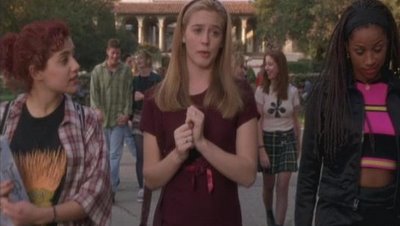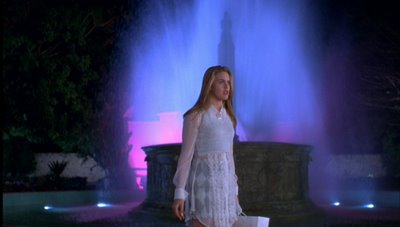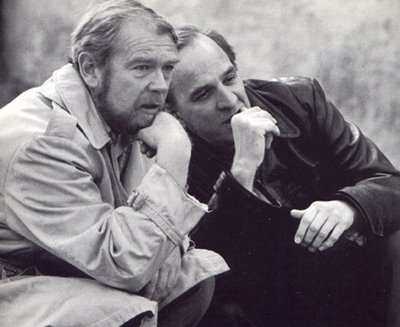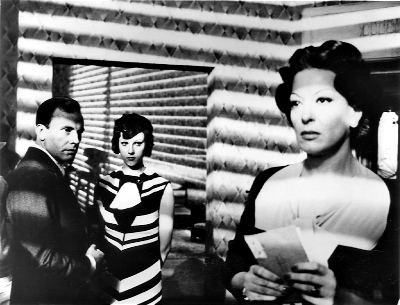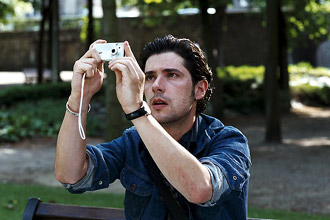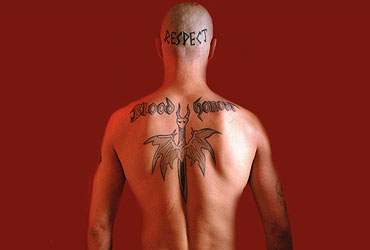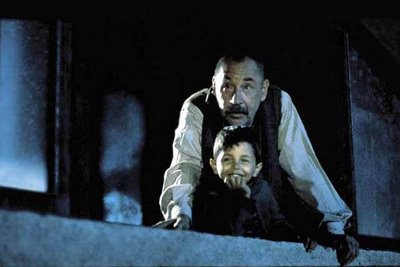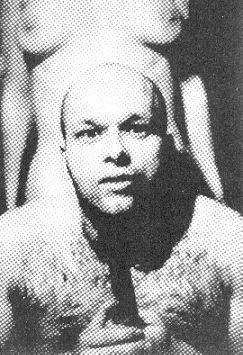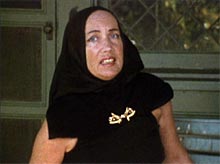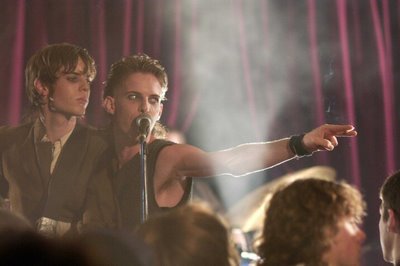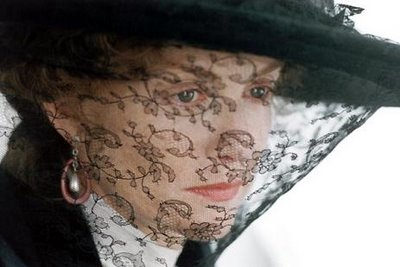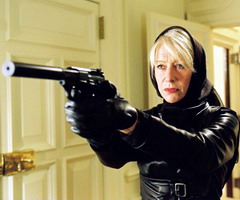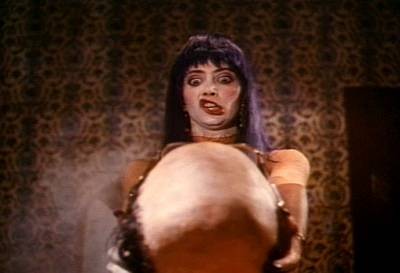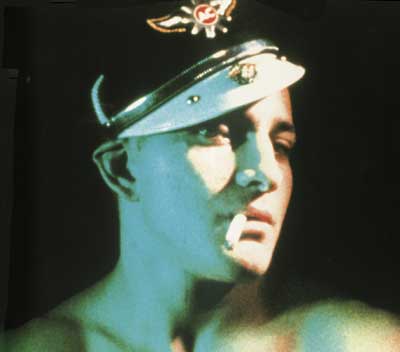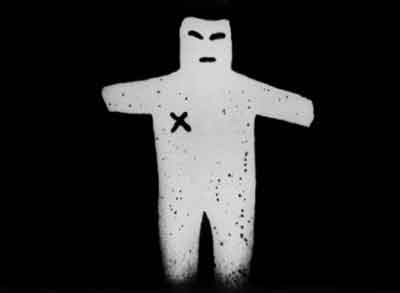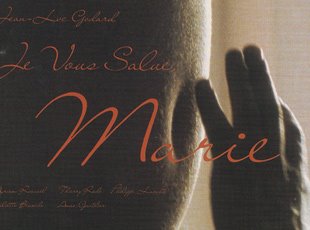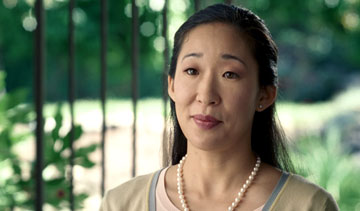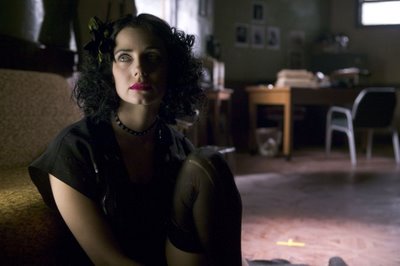
I haven’t done a “coming soon to your theatre” post in a while, and I’m still pissed that Abel Ferrara’s
Mary hasn’t found distribution yet. C’mon, it could so easily ride on the coattail of
The DaVinci Code, and I wouldn’t mind.

First off, how can you resist a bunch of cute kids taking back America for Jesus? In
Jesus Camp, these kids apparently want to be Billy Graham and attend a fun-filled Jesus Summer Camp. I always love patronizing Christians, so you’ll see me in line dressed as the Savior himself. I might also recommend
Hell House for jaw-dropping, are-Christians-for-fucking-real laughs and squirms.

You can always count on Helen Mirren to give us a fine performance in
The Queen; she did win the Best Actress prize at the Venice Film Festival (but then again, so has Robin Tunney). More so, you can always count on Miramax to release an unnecessary biopic for Oscar season, even without the Weinsteins. Sure, Stephen Frears is sort-of respectable, but I’ll wait for video to see the ravishing Mirren play her second Queen Elizabeth of the year.
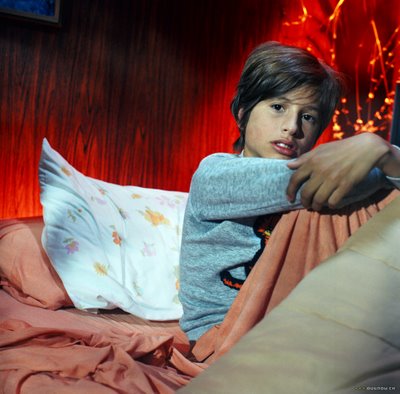
Gus Van Sant has yet again produced a young gay boy’s coping with sexuality à la
Tarnation. This one’s called
Wild Tigers I Have Known and is the first feature by Cam Archer, who’s made several shorts prior. I think I’ll skip this one too.

One film I certainly will not skip is John Cameron Mitchell’s
Shortbus, which looks to be stellar. ThinkFilm knew what they were doing to get me in the seat when they used the quote, “Like Woody Allen’s Manhattan, only with money shots.” The film stars Sook-Yin Lee, whom you might remember as Kwahng-Yi from
Hedwig. She’s also a Canadian television personality who almost lost her job because of the film. Thankfully, Yoko Ono, Michael Stipe, and Francis Ford Coppola (surprise) came to her aid and defended her artistic expression. You can see the uncensored trailer, finally, at
www.shortbusthemovie.com.

Certainly one of the big Oscar baiters, Todd Field’s follow-up to his critically-acclaimed
In the Bedroom (I really only liked the film for Sissy, but whatever),
Little Children, comes out in October. The film stars Kate Winslet, Jennifer Connelly, and Patrick Wilson (
Hard Candy) and, as long as it doesn’t turn out to be as horrible as Winslet’s other film this year,
All the King’s Men, will likely run off with several nominations.

Ryan Murphy, creator of such deliciously appealing television shows as
Popular and
Nip/Tuck, will take his first time directing in an adaptation of Augusten Burroughs’
Running with Scissors. The poster blows, and I hate Annette Bening, but with support from the always-reliable Brian Cox, I may be able to stomach her.

I’ve said enough about Sofia and the sure-to-be-failure of
Marie Antoinette, so just take note it comes out on the 20th of October.

As someone who strongly disliked
21 Grams and was passively unimpressed with
Amores perros, you can bet I’m not really looking forward to Alejandro González Iñárritu’s
Babel, which won him the Best Director prize at Cannes. It sounds nauseatingly a lot like
Crash, so beware.
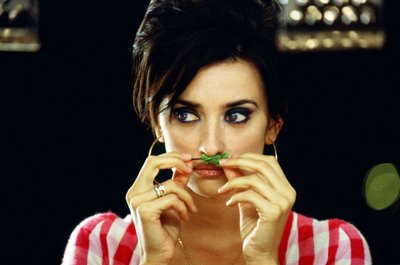
After a several month delay, Pedro’s
Volver is opening on the 3rd of November in New York and L.A. I’ve said plenty about this one, too, so just expect a full review once it comes to Saint Louis. Pedro apparently tried to make Ms. Cruz look as much like Sofia Loren as possible.

Also on the 3rd, Sacha Baron Cohen’s
Borat: Cultural Learnings of America for Make Benefit Glorious Nation of Kazakhstan will be released nationwide. Borat, one of Cohen’s three characters from
Da Ali G Show, is a Jew-hating, sex-obsessed television star with poor English skills. The film apparently features some wonderful tea-bagging, so prepare to have a good ol’ time at the movies.
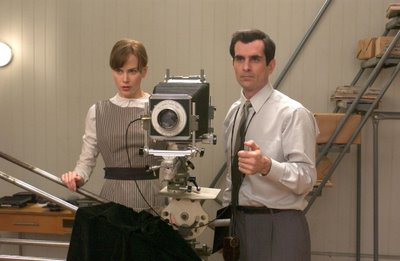
Yeah, I’m not happy Nicole Kidman is playing Diane Arbus either, and I may be even less happy that Steven Sheinberg (
Secretary) is directing the dreadful-looking biopic
Fur: An Imaginay Portrait of Diane Arbus. The film also stars Ty Burrell (
Dawn of the Dead,
Friends with Money) and Robert Downey, Jr.

ThinkFilm will be releasing the documentary
Fuck (or,
F*ck) on the 10th. The documentary, about the origins and offensiveness of the word, features Kevin Smith, Ron Jeremy, Alanis Morrissette, Janeane Garofalo, Billy Connolly, and Bill Mahr, to name a few. Let’s hope this film is a bit more enlightening than that dud,
The Aristocrats.

Also from ThinkFilm, the sudsy, druggy romance
Candy will be out in New York on the 17th of November. The Australian film stars Heath Ledger, Abbie Cornish (
Somersault), and Geoffrey Rush.

Count me out, despite my love for Hugh Jackman, on Darren Aronofsky’s
Requiem for a Dream follow-up,
The Fountain. Critics hated it at Toronto, and chances are: I’ll hate it too. The film also stars Aronofsky’s wife, Rachel Weisz.
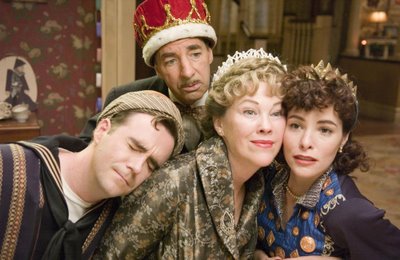
Christopher Guest returns with his usual crew (Catherine O’Hara, Parker Posey, Eugene Levy, Michael McKean, etc), in addition to The Office’s Ricky Gervais, with
For Your Consideration, another mockumentary about a group of actors putting on a play.
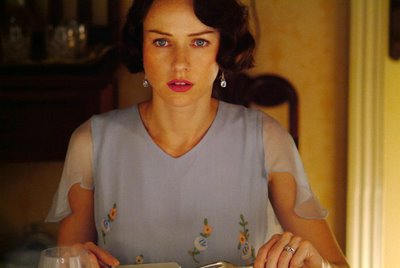
Naomi Watts will star in the Greta Garbo role in
We Don’t Live Here Anymore director John Curran’s remake of
The Painted Veil. I’m expecting plenty of crying from Watts, who’s slowly taking the crying trophy away from Julianne Moore. The film also stars Liev Schrieber and Edward Norton.

And speaking of Julianne Moore, she will star in Alfonso Cuarón’s
Children of Men, a science fiction film about a woman who becomes pregnant despite procreation being a thing of the past. Clive Owen, Michael Caine, Chiwetel Ejiofor, and Peter Mullan also star.
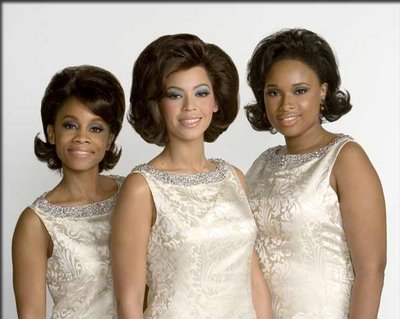
And, what better way to spend Christmas than with Beyoncé playing herself… I mean, Diana Ross… I mean “Deena Jones,” the lead singer of a three girl pop group, in
Dreamgirls. So far, it looks to be the only musical this Christmas season, and with
Idlewild doing poorly, I doubt we’ll see a whole lot more coming our way.

Finally, Guillermo del Toro’s
Pan’s Labyrinth (
El laberinto del Fauno) will have a limited release before the new year, possibly in hopes for Oscar consideration, though I doubt a fantasy horror film will have a good chance. From the looks of the other releases this year, who knows? It’s supposed to be his best film since
Cronos.
 District B13 (Banlieue 13) - dir. Pierre Morel - 2004 - France
District B13 (Banlieue 13) - dir. Pierre Morel - 2004 - France




















